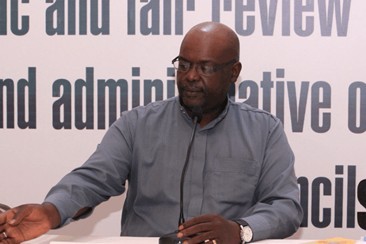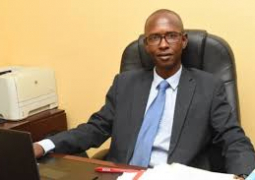
Appearing before the Local Government Commission of Inquiry (LGCI) probing the affairs of BCC, Batchilly rejected Mayor Lowe’s earlier claim that the CEO and Finance Director held “absolute control” over financial decisions.
According to Batchilly, "nothing was done without her knowledge," stating that she was included in all meetings and correspondences because she represented the Council.
“That’s not how I run my administration,” he said, in response to questions on whether he exercised absolute control. “I always work on consensus.”
When asked about financial authorizations, Batchilly stressed that the Mayoress was always in the picture, even if she claimed otherwise.
This directly contradicts the Mayors previous claim that she had little to say no in financial decisions. However, Batchilly said he never operated in isolation and that decisions were often made collaboratively, including controversial ones like the removal of council official, Momodou Camara from Ostend, which he said involved the Mayoress herself.
Scrutiny turned to numerous questionable payments made in the name of individuals closely affiliated with the Mayoress. Among them: Fatou Mbenga, for whom several payments were made including D50,000 and a D400,000 allegedly for activities involving CSOs.
Modou Lamin B. Bah, a known associate, Isatou Njie, the Mayor’s personal assistant. Omar BJ Touray, the Deputy Mayor, who received D100,000 as a loan, D50,000 for religious donations, and D10,000 each for logistics and foreign events as well as Binta Conteh, the Mayoress’ secretary.
In total, over D2,507,000 in payments were made under dubious procedures and recorded in the name of individuals close to the mayor’s office.
These vouchers were admitted into evidence.
When asked why payments were made in the names of these individuals instead of the Council or its departments, Batchilly said it had become a "mode of operation" at BCC, but admitted it was procedurally wrong. He conceded it was a “major oversight” on his part for not objecting to the practice.
Lead Counsel pressed further, suggesting that such repeated practices point not to oversight but to compliance with wrongful instructions.
Batchilly responded: “I was not forced, but I followed instructions even when I knew they were wrong.”
Batchilly admitted that the procurement process was not followed for major spending, and that despite the establishment of a procurement unit prior to 2019, the Mayoress continued to manage disbursements directly through her office.
“I feel troubled, because at the end of the day, some disbursements were not done the right way,” he said.
He acknowledged that only requisitions were used, and there was no documentation to justify the use of funds in some cases.
Lead Counsel emphasized that funds like these could have been better utilized to improve schools, healthcare, or agricultural programs key areas cited in the Local Government Act.
Batchilly agreed, further revealing that he had proposed an educational committee, but the Mayor preferred all requests pass through her office.
“That’s only to serve self-interest,” the Lead Counsel charged.
“I don’t deny it,” Batchilly replied.
Questioned about the Council’s assets, Batchilly said BCC had 18 properties in Banjul, but acknowledged a lack of clear documentation and transparency in land allocations. Transactions related to leased properties lacked supporting evidence, with notable discrepancies in documentation.
The Chairperson of the Commission, Jainaba Bah raised additional critical points, especially around the governance structure and administrative inefficiencies under Batchilly’s tenure.
Referring to the Local Government Act, the Chairperson questioned the former CEO on the issue of overstaffing, noting that several departments were unproductive and inefficient. Batchilly admitted the concern, acknowledging that the bloated structure led to poor service delivery and public dissatisfaction.
He further clarified that prior to 2019, the Council had full administrative control, but this changed when the Local Government Service Commission became more involved and instrumental in council affairs.
On land management, Batchilly reiterated that while Council approval was given for leased lands, many of the transactions were poorly documented, and the approval processes were unclear.
Read Other Articles In Headlines




